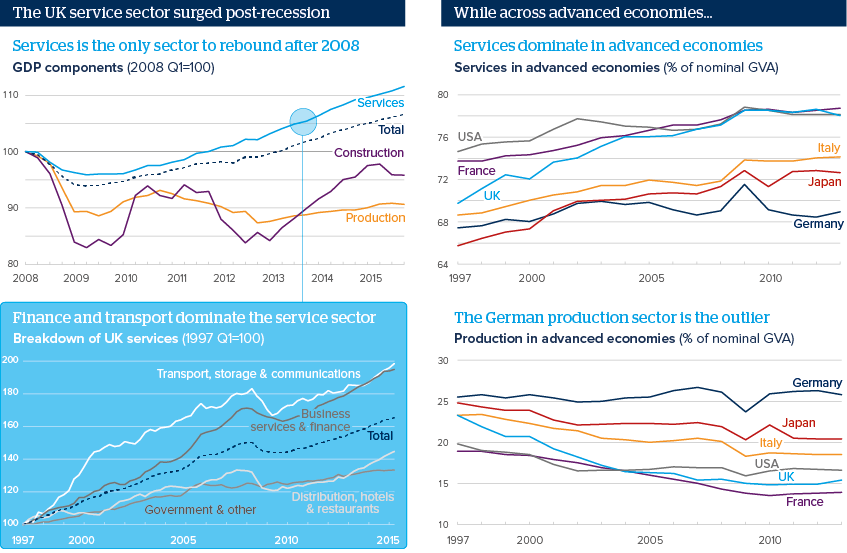UK economy will remain services-dominated
Rebalancing an advanced economy towards manufacturing is an attempt to reverse the natural tide of development
Updated: Feb 10, 2016

Source: Office for National Statistics, OECD
Outlook
In May 2010, Chancellor George Osborne pledged to build a "new, balanced economy" that would not risk the overdependence on financial services that proved so damaging in 2008-09. Yet moving into services is the advanced-economy pattern also followed by the United States and France; production is falling as a percentage of gross value added in Italy and Japan; it has only held its own in Germany. The government seems quietly to have accepted the inevitable; it will continue doing nothing in practice to revert to the 19th century model.
The Blair government set its emphasis in education policy on sending 50% of the population to university -- this was to fit them for the services-dominated economy of the 21st century. To revive manufacturing would require a massive reorientation towards engineering and apprenticeships, which is not in the offing.
Impacts
- UK industrial policy is concentrating on 'niche' areas of manufacturing -- such as special steels, arms and pharmaceuticals.
- Foreign investment in highly competitive, greenfield automobile plant has assumed continued access to the EU single market.
- Protecting the vital UK business services and finance sector from policy set by and for the euro-area will remain a key government aim.
See also
- UK manufacturing sector will stay weak in 2016 - Feb 10, 2016
- EU steel sector woes pose China challenges - Jan 26, 2016
- More graphic analysis